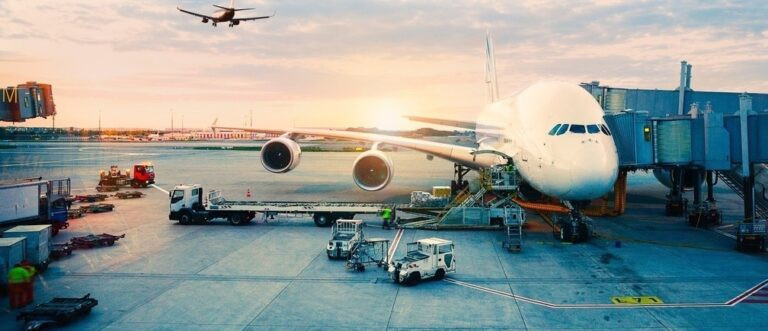In the wake of the Covid-19 pandemic, the global air cargo industry witnessed unprecedented shifts and challenges, fundamentally altering its operational landscape.
Speaking at the China Air Cargo Summit 2024, Roland Weil, Vice President of Cargo Sales at Frankfurt Airport, shed light on the evolution of air cargo hubs during this tumultuous period and the trends shaping the sector’s future.
Weil further stated that, “Covid-19 was not just a crisis; it was a stress test that redefined the way air cargo operates,” Weil stated. “What emerged was a sector capable of resilience, rapid adaptation, and even innovation under extreme pressure.”
Resilient sector
As global economies grappled with pandemic-induced recessions, the air cargo industry emerged as a resilient pillar, crucial for sustaining supply chains. Frankfurt Airport, a cornerstone of European air cargo, demonstrated this resilience by adapting swiftly to disrupted conditions. “The pandemic was not just a disruptor; it was a catalyst for innovation and resilience in the cargo sector,” remarked Weil.
Data from Frankfurt Airport highlighted a notable recovery in cargo volumes by 2024, nearing pre-pandemic levels with a projected growth rate of 2.2 percent annually until 2035.
“This growth reflects the sector’s ability to not only recover but also adapt to the increased demand for e-commerce and critical goods during the pandemic,” Weil noted.
Redfining trends
The pandemic accelerated the rise of e-commerce, reshaping global trade patterns. Frankfurt Airport leveraged this shift by establishing efficient processes for handling e-commerce imports. “We don’t just talk about e-commerce; we act decisively, streamlining imports with minimal delays,” Weil emphasised.
With changing nature of business, Frankfurt Airport invested significantly in digitisation to enhance operational efficiency. The implementation of digital infrastructure, including a Cargo Community System and a cargo dashboard, has ensured seamless, transparent logistics. “Digitalisation is no longer a luxury; it’s a necessity for future-proofing the air cargo industry,” remarked Weil.
The pandemic underscored the importance of reliable transport for pharmaceuticals and perishables. Frankfurt Airport expanded its handling capacity with dedicated facilities, including a 14,000 sq m certified pharma hub and a 10,000 sq m perishables centre with 20 temperature-controlled zones. “Our investment in specialised handling facilities reaffirms our commitment to meeting the growing demand for sensitive cargo,” Weil added.
Recognising the need for sustainable operations, Frankfurt Airport introduced eco-friendly measures such as e-charging infrastructure for trucks and optimised flight operations to minimise environmental impact. “Sustainability is integral to our master plan,” noted Weil, underlining the importance of aligning operational growth with environmental stewardship.
Global cargo gateway
Positioned as a pivotal hub for world trade, Frankfurt Airport connects 283 cities across 90 countries, emphasising its strategic importance. The airport’s unique blend of belly and freighter cargo operations has been instrumental in maintaining robust global connectivity. “Frankfurt is not just a cargo hub; it is a lifeline for global trade,” Weil asserted.
The airport’s collaboration with key markets, particularly in Asia and the United States, has ensured steady growth in cargo volumes. “Frankfurt is not just a hub; it is a lifeline for global trade,” Weil emphasised. With increasing weekly connections to China and the largest frequency increase since 2015 slated for 2025, Frankfurt is poised for continued dominance.
Learned lessons
Weil identified several key lessons learned during the pandemic. Chief among them was the importance of flexibility in logistics, the need for collaboration across the supply chain, and the prioritisation of critical cargo. “We learned to work smarter, not just harder. Flexibility, speed, and cooperation were the pillars of our success,” he observed.
Another revelation was the shift in booking behaviour. Customers demanded shorter lead times and greater reliability, prompting hubs like Frankfurt to refine their processes. “The industry has moved towards a just-in-time model. It’s a challenge, but it’s also an opportunity to innovate,” said Weil.




